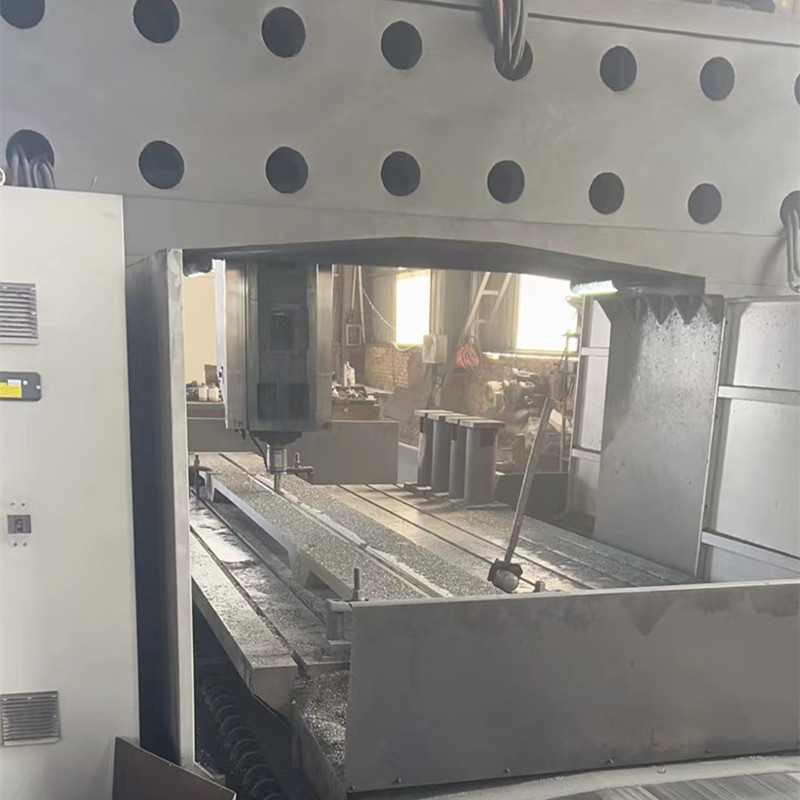Nov . 12, 2024 15:23 Back to list
granite inspection table
The Importance of Granite Inspection Tables in Quality Control
In the realm of manufacturing and engineering, precision and accuracy are paramount. Among the various tools and equipment used to ensure that products meet the desired specifications, granite inspection tables stand out as essential instruments in quality control processes. In this article, we will explore the significance of granite inspection tables, their construction, applications, and advantages in various industries.
What is a Granite Inspection Table?
A granite inspection table, also known as a granite surface plate, is a flat, level platform made from natural granite. These tables provide a stable, non-deforming, and highly accurate working surface for inspecting and measuring parts and assemblies. The hardness of granite, combined with its resistance to wear and thermal changes, makes it an ideal material for creating measurement equipment that must maintain its integrity over time.
Construction of Granite Inspection Tables
Granite tables are typically made from blocks of high-quality granite that are carefully selected for their uniform density and consistency. The surface of the granite is meticulously polished to create a flat, smooth finish that minimizes any imperfections. Each inspection table undergoes rigorous calibration to ensure its flatness and adherence to industry standards, typically within a tolerance of a few micrometers.
Applications of Granite Inspection Tables
Granite inspection tables are widely used in various sectors, including aerospace, automotive, manufacturing, and machining
. They serve several crucial functions1. Dimensional Inspection Granite tables are used as reference surfaces for measuring the dimensions of components. This is particularly vital for parts that must meet strict tolerances, such as those used in aerospace or automotive applications.
2. Assembly Verification When assembling complex components, granite tables provide a stable base to check for alignment, ensuring that each part fits properly before final assembly.
granite inspection table

3. Tool Calibration Many precision tools and gauges are calibrated against granite tables to ensure their accuracy. This is crucial in maintaining quality during the production process.
4. CMM Support Coordinate Measuring Machines (CMMs), which are used for precise three-dimensional measurements, are often placed on granite tables. The flat surface helps ensure that the CMM operates accurately.
Advantages of Granite Inspection Tables
1. Stability and Durability Granite inspection tables are renowned for their stability. Unlike other materials, granite does not warp or deform over time, even under significant weight or temperature changes. This stability is essential for maintaining measurement accuracy and consistency.
2. Non-Magnetic Properties Granite is non-magnetic, making it ideal for measuring instruments that are sensitive to magnetic fields. This property helps prevent disturbances that can occur with steel tables.
3. Ease of Maintenance The smooth surface of granite is easy to clean and maintain. Regular cleaning prevents dust and debris from affecting the accuracy of measurements, while the resistant nature of granite ensures it does not corrode or wear easily.
4. Versatility Granite tables come in various sizes and thicknesses, making them adaptable to different applications and workspace requirements. Moreover, they can be fitted with various accessories like T-slots for securing fixtures and measuring instruments.
5. Cost-Effectiveness While the initial investment in a granite inspection table may be substantial, their longevity and low maintenance costs make them a cost-effective choice over time.
Conclusion
In summary, granite inspection tables are critical in the quality control landscape across multiple industries. Their durability, stability, and precision contribute significantly to maintaining high manufacturing standards. As industries continue to place emphasis on quality assurance and process improvement, the role of granite inspection tables will undoubtedly remain vital. Investing in a granite inspection table is an investment in accuracy, efficiency, and excellence in production processes. Whether in an engineering lab, a manufacturing facility, or a quality assurance department, these tables serve as the foundation for superior inspection and measurement practices.
-
Y Type Strainer Maintains System Efficiency Long TermNewsJul.15,2025
-
Valve Selection Guide for Industrial ApplicationsNewsJul.15,2025
-
Steel Fab Table Provides Durable Work Surface for WeldingNewsJul.15,2025
-
Pad Iron Provides Stable Support for Heavy MachineryNewsJul.15,2025
-
One Inch Check Valve Fits Standard Plumbing SystemsNewsJul.15,2025
-
Measuring Micrometer Ensures Precise Dimensional AccuracyNewsJul.15,2025
Related PRODUCTS









